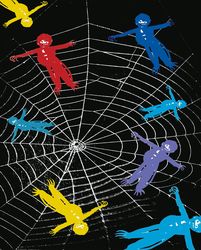Bilkis Bano cried tears of relief,” her lawyer, Shobha Gupta, told me as the news filtered in that the Supreme Court had ordered her 11 convicted rapists to be sent back to jail.
The passage of time can dull the memory of the horror that was inflicted on Bilkis when she was just 21 and three months pregnant. She was gangaped, pinned to the ground and forced to witness the rape of her mother. Worst, Bilkis was held forcibly as her three-year-old daughter was killed; her head smashed with a stone. Several other relatives were killed. The men who did this were sentenced to life imprisonment. But they were released by the Gujarat government in a wholesale remission decision that has now been described by the Supreme Court as an order obtained through “fraud, ...abuse of power... and misrepresentation of fact”.
“We are often desensitised because of what we see everyday, but this was a crime against society, a crime against humanity, a crime against the Constitution,” Justice Deepak Gupta told me. Gupta was part of the Supreme Court bench that had in 2019 ordered the Gujarat government to pay Bilkis Rs50 lakh in compensation.
Justice U.D. Salvi, who had sentenced Bilkis Bano’s rapists to life imprisonment in 2008, said the verdict would “reaffirm the trust of people in the judiciary at a time when all kinds of things are being said about it”. The fact that these convicts had walked out to celebrations, garlands and sweets, Salvi told me “was proof that they had never reformed at all”.
The Bilkis Bano verdict is seminal and not just because it delivers long overdue justice to a beleaguered woman who has spent the last two decades fighting in court. It is important because it reminds the judiciary about what its role is in a healthy democracy. “This is what justice feels like” is how Bilkis expressed it, but she spoke for millions of Indians.
Justice B.V. Nagarathna, whose bench delivered the powerful order and who might well be India’s first woman chief justice, located the Bilkis case within the larger debate around the rule of law as the essential principle of a democracy. “Rule of law means whenever and wherever the state fails to perform its duty, the court would step in…. Courts have to be mindful of not only the spelling of the word justice but also the content of the concept,” say the judges.
Most bravely, in a possible nod to their own colleagues—because remember this judgment nullifies an earlier verdict by the Supreme Court—the order states, “Those concerned with the rule of law must remain unmindful and unruffled by the ripples caused by it.”
The last word in this case has, unfortunately, not been spoken. The lawyer for the convicts, Rishi Malhotra, has made it clear that he will exercise legal options in seeking a review of the Supreme Court response. On the ground, several of the convicts have been ‘missing’ from their homes since 2022, raising questions about whether they will surrender in the two-week time frame set by the court. Another set of pleas and petitions could consign Bilkis Bano to more years of struggle.
But with all these caveats, the Supreme Court verdict does what is needed in every democracy. It restores checks and balances. It is a spring-cleaning moment to clear out the cobwebs.
editor@theweek.in


